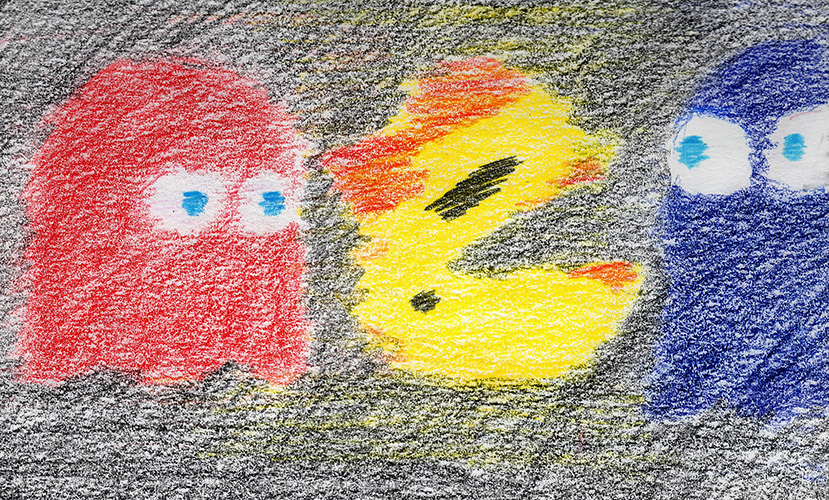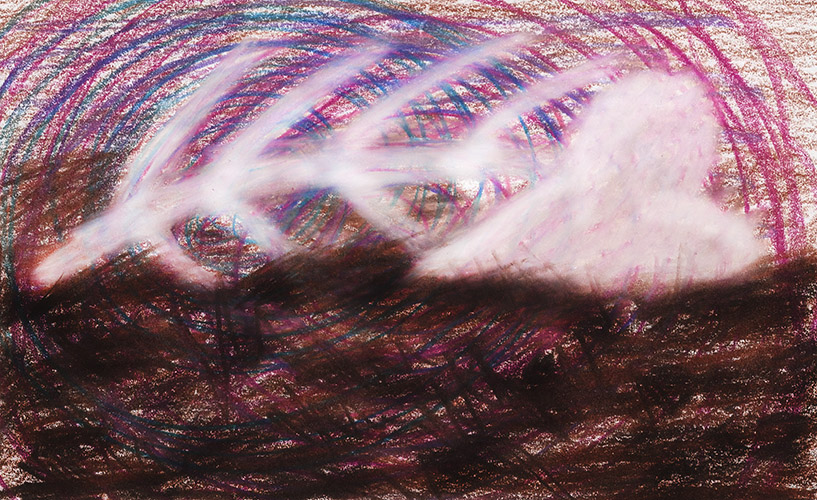“Memento mori,” from Latin, means “remember death.” From victorious Roman generals humbled by “memento mori” chants to Mexico’s Día de Los Muertos, people of many cultures have embraced this philosophy. To remember death is to acknowledge our brevity. To remember death is to value life. To remember death is to remain humble.
We have Halloween, but that centers around campy movies, candy corn, and rumors of meth-laced Milky Ways. Skulls and tombstones serve as fitting reminders, but we are desensitized to these images. Too many of us deny our own mortality until the smiling mortician stands above us. Ferlinghetti knows the world, despite its beauty, is an evanescent place. But most people avoid poetry and art. We can ignore death all we want, but we can’t escape it. As Alan Lightman asks, “Where are the one billion people who lived and breathed in the year 1800, only two short centuries ago?”
Should we place the inevitability of death more in the foreground of our collective consciousness? Would it help? Does it matter?
Before adolescence, I thought of death more than I do now. I was convinced I’d die young, but I’m past that age. This fact grants me no solace. My family, it seemed, embraced death and suffering. Our lives felt tragic and, thus, carried tremendous import. In my childhood, I traveled an unenviable loop: We hopped from hospital to wake to funeral and back. Someone was always dying, and this acquaintance with death would be a major contributor to my early identity. I had the inside scoop on the macabre scene. I was an emo kid in K-Mart sweatpants.
When I was eight, my 15-year-old cousin died in an accident. Snowmobile, tree. I remember the primordial wailing, the news crews. It was right before Christmas. Our language has no words, and our brains have no ability, to make sense of such misfortune. We fumble with metaphor. Religion offered its usual message, which was not actually an explanation for mortality at all: immortality. But spiritual parables only confused me further. Faith demanded mystery and magic. I wanted answers. Around this time, my dentist’s office had a Ms. Pac-Man arcade game that didn’t require any quarters. You could barrel into a ghost with no consequences. Decisions didn’t matter. Ms. Pac-Man, for better or worse, had transcended mortality, finding herself in an eternal hell, a nonstop hunt in her afterlife. With my nascent brain trying to make sense of death, this silly video game somehow made more sense to me than a boy dying before growing into an adult.

Over the next five years, I strayed further from spirituality. During this time, my grandmother died. Then, my uncle — my cousin’s father — passed away in his 40s. I attended each wake and funeral, spent winters in Intensive Care waiting rooms. It was a heavy pre-adolescence. I was certain my life was more important than the lightweight lives of my classmates because I knew tragedy.
How melodramatic was I?
After expecting death to strike every two or three years, I grew from a child to a young adult with a halcyon stretch of over six years without a family member dying. Off to some other place, death went. A family eventually runs out of people, of course; grandparents are finite, as are aunts and uncles, brothers and sisters, mothers and fathers. In terms of funeral attendance, my family had a regression to the mean. For a while, at least. As my adolescent years provided a respite, I was guilty of having the typical feelings of immortality, which manifested as speeding and stupidity. A sort of anti-memento mori, if you will. Did I live? I did. But in my 20s, when three more relatives died, I realized death was sitting there the whole time. Waiting.
In college, I read Milan Kundera’s famous philosophical novel, The Unbearable Lightness of Being. I walked away encouraged, even liberated by the meaninglessness — yes, the lightness — of all humanity. How could one insignificant life matter? I interpreted the novel as if I could be let off the hook. If my life didn’t matter, my mistakes didn’t matter. This is the naïve existential interpretation one might expect from a young would-be scholar learning philosophy. Before long, my supposed clarity dissolved. It’s a conundrum, after all. I could temporarily fool myself into believing the meaninglessness of my life, but thoughts and narratives still emerged, whether I liked it or not. More recently, I read Edward O. Wilson’s The Meaning of Human Existence. Such an ambitious title might seem tongue-in-cheek. Nope. Wilson literally provides (what his science has led him to believe are) the answers. In one of my all-time favorite passages, he writes: “Human existence may be simpler than we thought. There is no predestination, no unfathomed mystery of life. Demons and gods do not vie for our allegiance.” This whole “no unfathomed mystery” business certainly speaks to the finality of death. Perhaps scarier than the fear of early “memento mori” adopters (i.e., eternal damnation) is the earthly void—soil, decomposition. Mercutio’s flesh turned to worms’ meat. Eventually, alas, being forgotten. Billions and billions gone. Unbearable lightness indeed.
(Be humble.)
Some find consolation in returning to earth, finding meaning in renewing the natural world through death. Psychedelic experiences, for example, have made terminally ill people much more comfortable with dying. I’m not there yet. That’s the funny thing about ego: shed it, shred it, dissolve it all you want, but it’s as resilient as Jason Voorhees with a tougher hockey mask, a louder chainsaw.

When I was in ninth grade, my only two friends were named John. When I transferred to a different high school the next fall in a world before social media, we lost touch. Never would I hear either John speak another word. Both died in their 20s a couple of years apart. Rumors were heroin. I’ve still never learned the exact causes of death. Their obituaries remain online — coy, stagnant, gathering digital dust.
On Friday nights, we’d play seven-card stud. At least one of the Johns cheated; the other one might’ve been complicit. But I didn’t care. It was something to do, so I donated my five dollars to the pot each weekend. Little did I know that during those weekends at one John’s house or the other’s, they were already in the second half of their lives. I had my first drink with the Johns, smoked my first cigar with the Johns (Zima and Dutch Master). We thought we were adults, but no, we were children. Except, I’d have more years left than both of my friends combined. They were charging headlong toward their final days. Memento mori. Remember death.
Sometimes I picture a pie chart with two slices: a life lived and life yet to live. How much of my own pie chart is complete? How much of yours? Morbid, too, is the fact of our death date — a Sword of Damocles hanging ominously over our life stories. As some smug death aficionados like to point out: We know our birthday and celebrate it each year, but we don’t know our death day. Nonetheless, we pass it each year unaware. Hell, your death day, or mine, might be today.
Should we celebrate the inevitability of the void? Perhaps not. But we shouldn’t ignore it. Years and opportunities will pass us by if we think we have forever. We don’t. •




